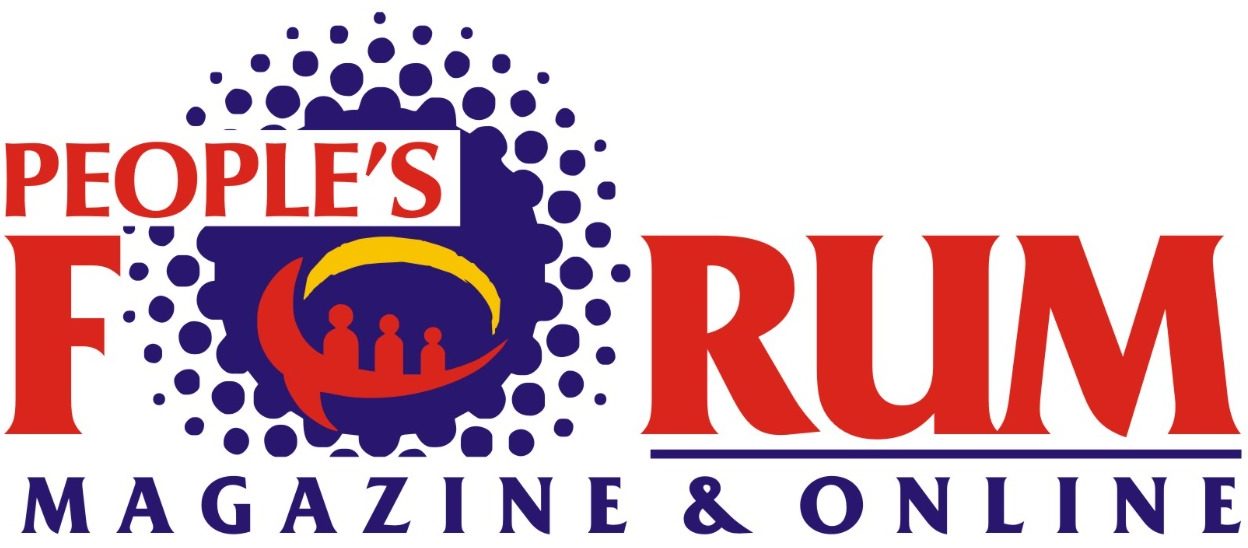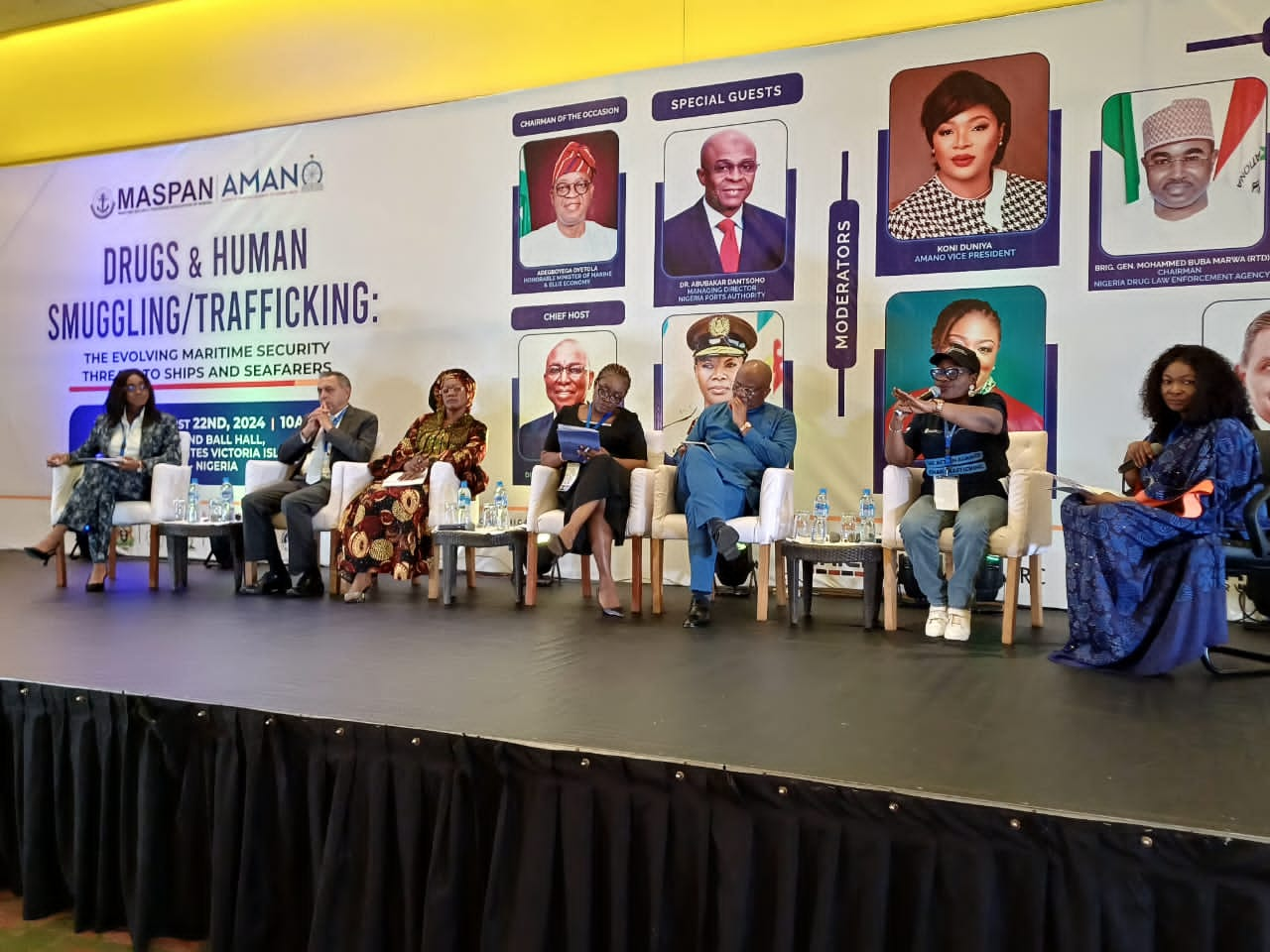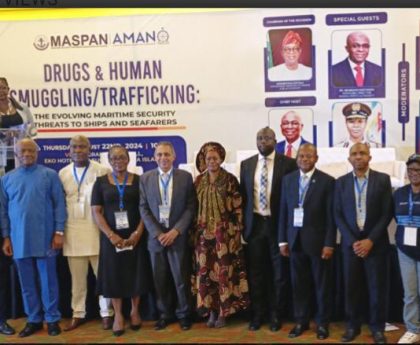By Babatunde Aremu
The President of Maritime security providers Association of Nigeria (MASPAN) an Alumni of Maritime Academy of Nigeria, Oron has blamed
Drug smuggling and human trafficking for the transnational crimes that exploit both the points of origin and destination! on the country’s territorial waters.
Speaking at a stakeholders
Conference held in Lagos the AMANO Boss expressed displeasure that it is quite Unfortunate that maritime transport provides the mobility needed to actualise these illicit crimes.
“Records from the United Nations Office on Drug and Crime (UNODC) show West Africa is a transit region for narcotics mostly emanating from South America.
With recent incidents involving merchant ships (excluding cases of drugs concealed in cargo containers) from South America to Nigeria rising to about four (4) within the last two (2) years, this maritime corridor proves to be providing mobility for this illicit activity” — He said
On the issue of human trafficking he disclosed that records from Africa Risk Compliance (ARC) show a significant number of incidents where stowaways have been discovered on ships calling Nigerian ports.
“While we may not present specific records linking stowaways to drug smuggling operations, it is of great concern that drug traffickers could potentially collaborate with stowaway networks. This partnership could lead to a coordinated effort to use stowaways as couriers, moving drugs from West Africa to Europe”
According to him Both MASPAN and AMANO express strong support for the fight against all forms of trafficking and smuggling, including Drugs and humans and are mainly focused on addressing responses to these crimes as they occur within the maritime corridor.
“We aim to ensure that perpetrators of these crimes are apprehended and fully punished of the law without subjecting the innocent to unnecessary difficulties that are counterproductive to the growth of shipping.
It is essential to remind ourselves that when the COVID-19 pandemic hit the world in 2020, Shipping was identified as one of the critical sectors to be allowed to operate on the realisation that this industry was required to navigate the world out of the difficult situation it finds itself” – He said
The MASPAN president pointed out that Compliance with International Ship and Port Facility Security (ISPS) Code standards alone does not guarantee a secured port. According to him Aside from the low standard of Port Facility Security Assessments/Plans in Nigeria, the peculiarities of the ecosystem have shown that the ISPS alone cannot secure most port facilities. This is he said is evidenced by cases of stowaways we have been recording in the ports corridor.
“Please let me outline some of the pressing concerns for the maritime sector to appreciate the magnitude of the problems.
Assuming a foreign Supermax (Bulk Career) Vessel gets arrested in a drug incident while on call to Nigeria, gets bailed after a couple of months, and has her crew prosecuted for up to two (2) years before they are discharged by the court.
The following costs are typically expected for the crew’s legal fees (Nigeria & UK) and OPEX, which can come to about $6 million United States Dollars. With the second- hand market value of such a vessel rallying around $15 million, the $6m will be 40% of the vessel value, which is enough to send a small operator bankrupt.
This is in addition to possible loss by the port/terminal operator from arrested vessels occupying the facilities before they can secure shifting.
The cost burden of a stowaway incident can vary based on discovery location, the distance the ship has sailed to, the number of the stowaways, the off-hire period to offload, and many other factors. In cases where the ship has reached a foreign destination, repatriation expenses can easily cost hundreds of thousands of US dollars, depending on the time taken to process and return and the stowaways.
Cases of drugs found on ships and poor port-ship access control, the shipping industry is expected to always respond to defend and protect itself with measures. An example is the War Risk Insurance premium, which is a response to risks such as piracy”
He called on stakeholders to use the opportunity of the conference to take proactive steps in safeguarding Nigeria’s maritime interests by making the Port corridor friendly while finding effective ways to fight the menace of drugs and human trafficking effectively and sustainably.





